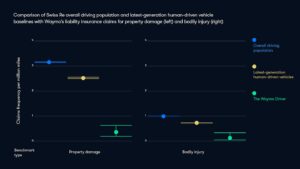Deeper Analysis of How to Interpret Insurance Policy Language—Where Insurance Coverage Nerds Go for the Weekend

If you can interestingly hang with these concepts:
[R]ecognizing that insurance policies, particularly standard form policies and especially those purchased by consumers, often operate more like a purchased product rather than a negotiated deal, can assist the court in better determining the purpose and function of the policy and intent of the ‘contracting’ parties. This understanding is likely to lead to improved interpretation of policy language. Knowing something about the insurance ‘product’ under review can also assist the court in determining what objectively reasonable expectations might be held by policyholders, insurers, and others relying on the policy. This in turn can, at a minimum, inform the interpretation of policy language and be used if the court is inclined to apply a strong Keeton-esque version of the reasonable expectations approach.
Likewise, the wide use of ISO insurance policy forms promulgated for the property or casualty industry has aspects of private legislation, industry standards akin to construction safety protocols or Generally Accepted Accounting Principles (GAAP), and other professional trade or guild standards. Appreciating these observations provide additional contextual background for assessing the meaning of policy text. Like the product analogy, the insurance-policy-as-statute approach can also illuminate party expectations and understandings of the operation and purpose of the insurance in question.
Similarly, viewing insurance policies in their role as social instruments or socioeconomic institutions assists interpretation by noting the function of the insurance policy in question. Presumptively, policy text should be consistent with the ordinary functioning of the insurance under review in the larger scheme of risk management. Knowing something about that larger scheme of things and ordinary function of the insurance assists a court in construing policy language. 1
Unfortunately for your loved one, you are an insurance coverage nerd. Some of us may love you, but if you unambiguously define “some” as “few,” that is probably correct.
Professor Stempel correctly alludes to the fact that the insurance contract is written as a product, as noted in this remark:
The type of policy at issue will inform the construction of policy terms. Although this will often merely confirm the court’s initial reading of policy text, it can provide greater certainty to the interpreting court as well as a window on the impact the decision may have. For example, an upscale steakhouse restaurant may purchase a general liability policy. The restaurant serves alcohol. Is it covered for dram shop liability? Commercial general liability (‘CGL’) policies typically contain an exclusion for claims arising under or related to the sale of alcohol. However, because the policy was purchased by an upscale steakhouse restaurant, such restaurants usually serve alcohol, which supports the policyholder’s claim of an objectively reasonable expectation of coverage. However, because general liability and liquor liability risks have long been considered different and thus segmented in the insurance market as two different products, the court can be comfortable applying the language of the liquor liability exclusion quite literally.
My suggestion is that if you have read this far into this post, all insurance coverage nerds not only subscribe to this blog but also join the Academy of Insurance. All Merlin Law Group attorneys have to subscribe to this valuable reference and teaching source when they first join the firm. I find it fascinating to learn how the industry teaches what the product it sells means. Most insurance company attorneys never learn from these resources—I guess they cannot bill their clients to learn what the product sold means.
If you read this deeply on a Saturday or Sunday, you will enjoy the extra education.
Thought For The Day
“Cause you know sometimes words have two meanings.”
—Led Zepplin
Song For The Day
1 Jeffrey W. Stempel, Erik S. Knutsen, Rejecting Word Worship: An Integrative Approach to Judicial Construction of Insurance Policies, 90 U. Cin. L. Rev. 561 (2021).



